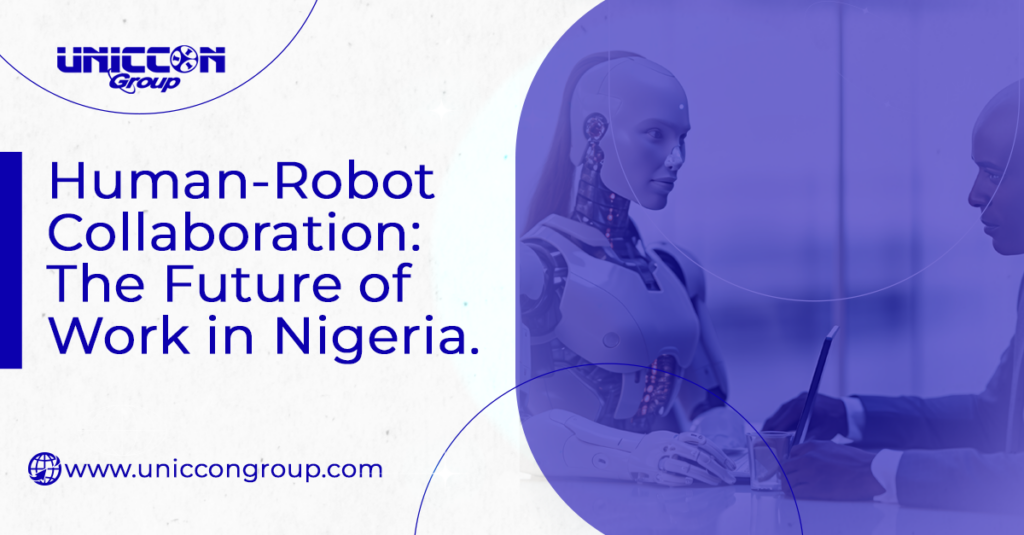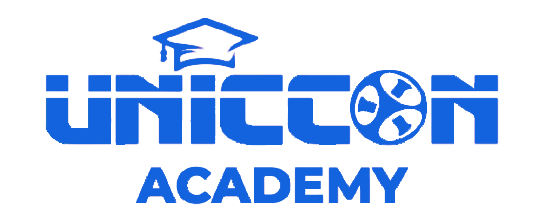
Human-Robot Collaboration (HRC) is the future of work in Nigeria and UNICCON Group is at the forefront of this development in Nigeria . The world is changing, and so is the way we work. With the advent of technology, robots are becoming more and more integrated into our daily lives. In Nigeria, HRC is already being used in various industries, and it is only a matter of time before it becomes the norm.
The benefits of HRC are numerous. Robots can perform tasks that are too dangerous or difficult for humans, such as working in hazardous environments or lifting heavy objects. They can also work faster and more efficiently than humans, which can lead to increased productivity and reduced costs. Additionally, robots can work 24/7 without getting tired, which means that they can increase output and reduce downtime.
However, there are also concerns about the impact of HRC on the workforce. Some people worry that robots will take over jobs that are currently done by humans, leading to unemployment and economic instability. Others worry that robots will be used to replace workers who are already in precarious positions, such as those in the informal sector.
Despite these concerns, HRC has the potential to create new jobs and opportunities in Nigeria. As robots become more integrated into the workforce, there will be a need for people to design, build, and maintain them. This will require a new set of skills and expertise, which can be developed through training and education programs.
Moreover, HRC can help to improve working conditions for humans. By taking on dangerous or repetitive tasks, robots can reduce the risk of injury and illness for workers. They can also free up time for workers to focus on more creative and fulfilling tasks, which can lead to increased job satisfaction.
In Nigeria, HRC is already being used in various industries. For example, in the manufacturing sector, robots are being used to assemble products and perform quality control checks. In the healthcare sector, robots are being used to assist with surgeries and provide care for patients. In the agricultural sector, robots are being used to plant and harvest crops.
However, there is still a long way to go before HRC becomes the norm in Nigeria. There are several challenges that need to be addressed, such as the high cost of robots and the lack of infrastructure to support them. Additionally, there is a need for policies and regulations to ensure that robots are used in a way that benefits both workers and society as a whole.
In conclusion, HRC is the future of work in Nigeria. While there are concerns about the impact of robots on the workforce, there are also many benefits to be gained. By embracing HRC, Nigeria can create new jobs and opportunities, improve working conditions for humans, and increase productivity and efficiency in various industries. However, it is important to address the challenges associated with HRC and ensure that robots are used in a way that benefits everyone.

Leave a Reply